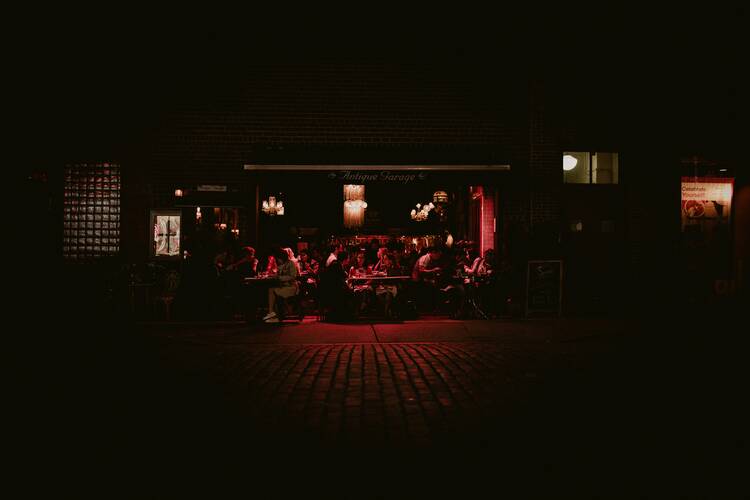A Reflection for the Memorial of St. Anthony of Padua, Priest and Doctor of the Church
Find today’s readings here.
For we who live are constantly being given up to death
for the sake of Jesus,
so that the life of Jesus may be manifested in our mortal flesh.
My friends in their twenties are talking about mortality. As natural overthinkers, we arrive on the topic long after we have exhausted the less philosophical (though still important) conversation starters—updates about family, careers, romances, politics, trending recipes, the rising price of Ubers, the changing climate, the choice between adopting a dog or a cat. These are fine appetizers, but they bore us quickly, so we skip ahead to the “medium” questions: Do we like our current selves? Will we have children? When? How can we afford it? Are we about to enter World War III? Should we quit our jobs and move to a commune in Tibet? Should we run for office? Should we run a marathon?
Then, we move on to the “biggies.” These questions are my favorites. They crop up after a few hours, and perhaps more than a few glasses of wine, and they are the real meat of the matter—the opportunity to exercise armchair existentialism: What happens when we die? Where do our souls go? What about our dreams? How do you grieve someone while you are still on earth? Do we believe in an afterlife? Is there a God?
As the resident Catholic of the group, I share my two cents on God and on death. I talk about how I believe that Jesus has conquered death by dying on the cross and that death is not the end, but a transition to eternal life with God. I share that I believe in the resurrection of the body and the reunion of soul and body in heaven at the end of time. And, after death, I believe that people undergo a particular judgment, which determines our immediate destiny, and a general judgment at the end of time. I find myself reciting parts of the Nicene Creed—and I find that, lovingly, I receive some pushback.
To those unfamiliar with or critical of Catholicism, my explanations can sound like a load of malarkey. It’s too fanciful, too unrealistic, I’m told. It’s too easy to blindly believe in something we can’t see or measure. My favorite thing to do when explaining Catholicism to non-Catholics is propose rather than impose, to point people in the direction of what I believe and to allow them to make their own judgements. When the conversation turns to death, I can’t think of a better Catholic take than today’s first reading, which acknowledges that to live is to inch closer and closer to death: “For we who live are constantly being given up to death…Death is at work in us.”
Yet we are told that the power of God counterbalances our human limitedness: “We are afflicted in every way, but not constrained; perplexed, but not driven to despair; persecuted, but not abandoned; struck down, but not destroyed.” Jesus lives in us, in our “mortal flesh.” His grace and abundance manifest equally in our faith—as declared in that Nicene Creed I mentioned earlier—and in how we conduct our lives, as sons, daughters, students, teachers, citizens, believers and non-believers alike.
So, death is at work in us. But God is at work in us, too. Still, I’m not let off the hook that easily. How is God at work? I’m asked. Well, I have a few answers, but ultimately, I say that I believe that God is love, and I believe that God exists because I see love everywhere, even in these spirited debates.
And after all this, we return to the mundane questions: How are you getting home? Is anyone hungry for dessert? Pizza? Shall I call the cab?








